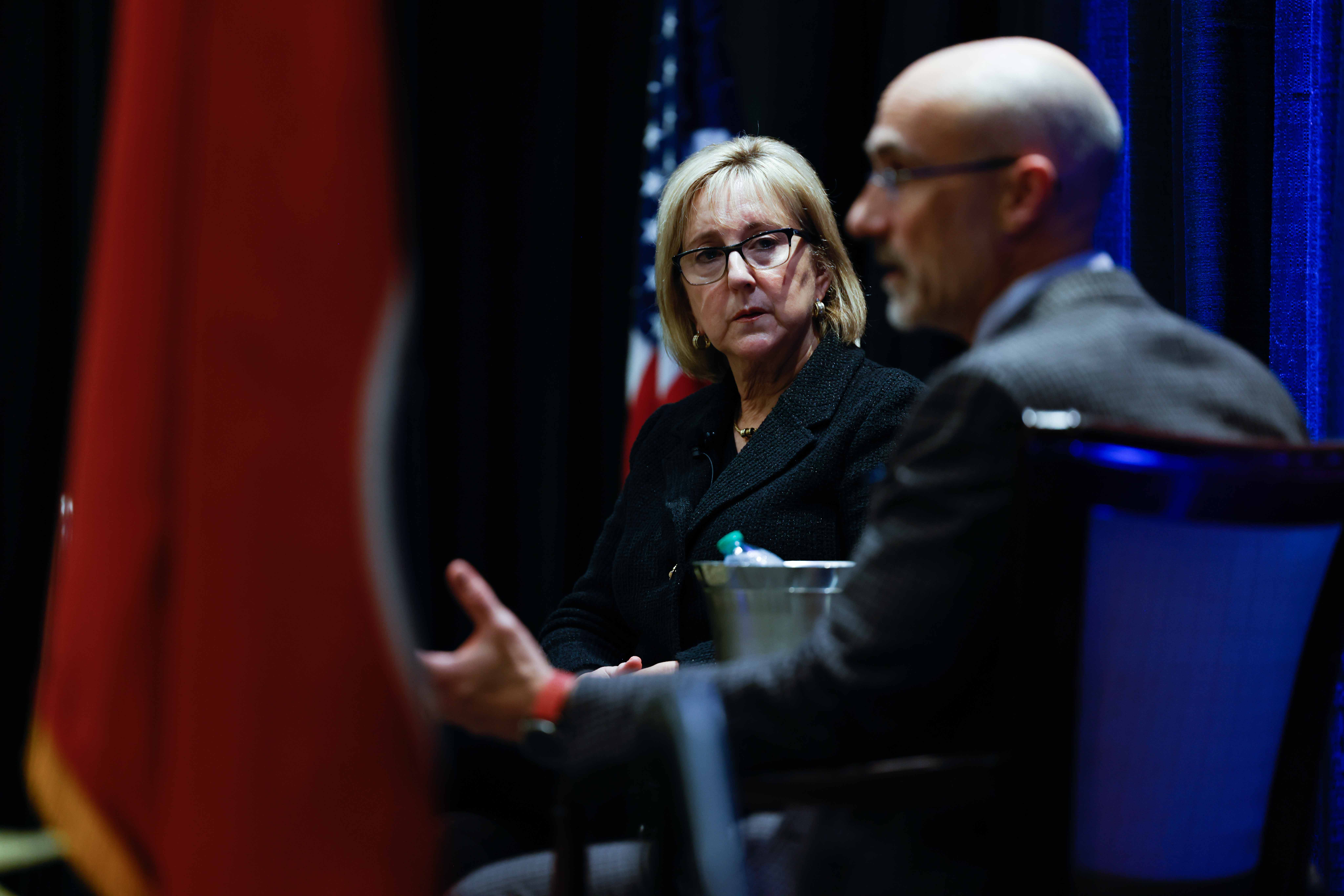Harvard Professor Talks Happiness and Leadership

Arthur Brooks, a Harvard professor, social scientist, and best-selling author, met with Chancellor Donde Plowman and other UT and community leaders last week. Brooks was visiting the university to discuss his work on the science of happiness and how we can come together as a nation in a time of deep divisions.
During his day in Knoxville, Brooks met with other small groups of faculty and staff, held a workshop with university and civic leaders that was moderated by Chancellor Plowman, and joined former Tennessee governors Phil Bredesen and Bill Haslam on their UT-produced podcast, You Might Be Right.
At the core of his message was the importance of personal happiness—which he defines as enjoyment, satisfaction, and purpose—and how we can use related habits and principles to create a happier, more engaged society. In addition to his books and scholarship, Brooks is a columnist for the Atlantic. He is also an inaugural member of the Board of Fellows for UT’s Institute of American Civics.
“Dr. Brooks’s message is one I think we all need to hear: that we are at our best and able to contribute the most when we are happy and fulfilled,” Plowman said after the visit. “When we come to the table with a clear understanding of who we are and our values and lead with a generous spirit, then it becomes much easier to disagree and debate in a productive way.”
In his message last week Brooks told leaders that they shouldn’t agree to disagree, because that approach leads to—in his words—total mediocrity. Instead of disagreeing less, he said, we should disagree better—starting with examining our own motives.
“What am I trying to do in this conversation? I’m trying to share my values. Are my values being used as a weapon or a gift?” he told the room. “That’s the problem in political discourse today—we’re sharing our values as a weapon all the time. That’s the reason nobody is being persuaded, that nobody is being enlightened, and nobody can talk to each other across party lines anymore.”